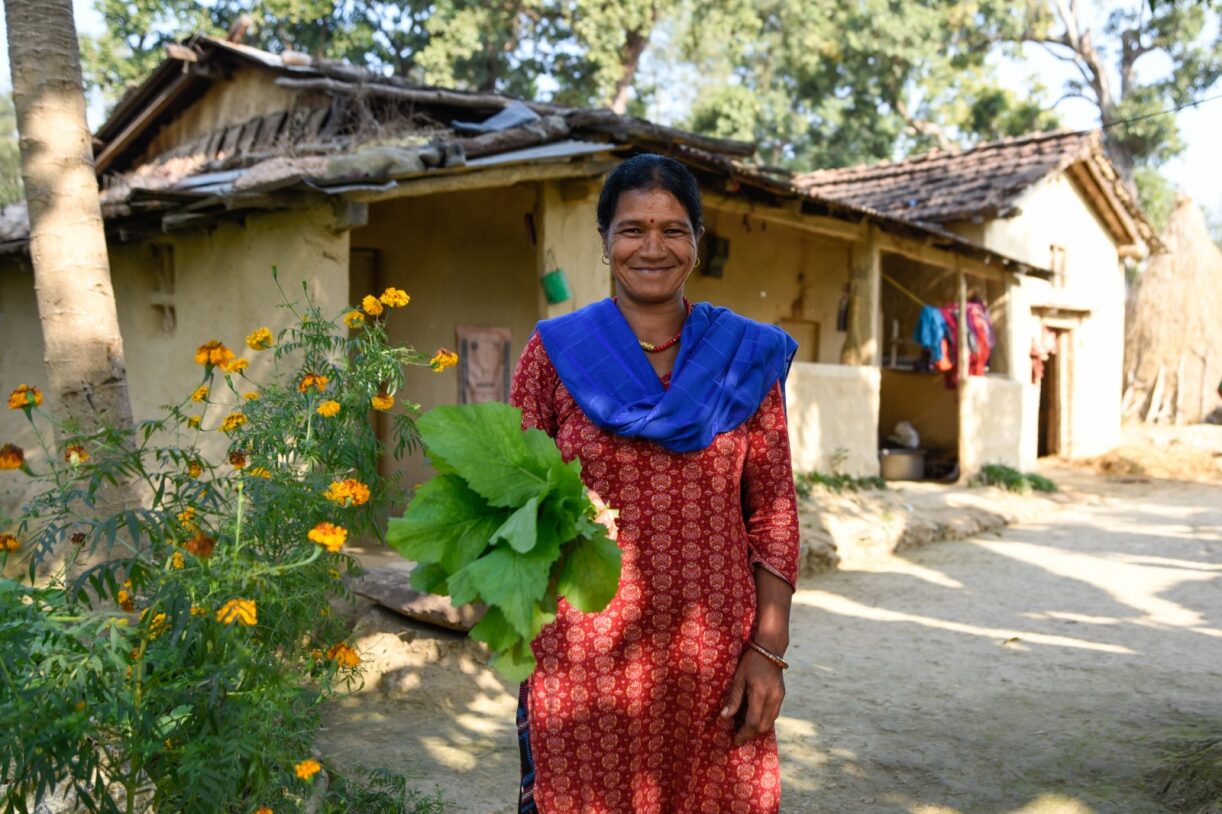Living in peace with nature requires conservation and good governance
CEESP News: Srinivasan Balakrishnan, National President, Bharatiya Yuva Seva Sangh (BYSS) & IUCN CEESP member
A healthy earth and human rights are interdependent. The key to attaining the goals of the Global Biodiversity Framework (GBF) is understanding the relationship between human rights and nature and realising human rights is a component of the solutions to protect the loss of nature.

Image from native local village in Kerala, India
In the context of the environment, a human rights-based approach emphasizes that everyone's rights to land, self-determination, water, and rest should be upheld equitably. Human rights must be respected, protected, and upheld if we are to have a safe, clean, and healthy environment. We must restore, safeguard, and sustainably live on our planet if we are to realize our human rights. Diverse worldviews, values, ethics, and spiritual beliefs exist across human civilizations, notably those of Indigenous peoples and local communities. These beliefs embody and direct our reciprocal interactions with other members of the earth. It supports the significance of correctly integrating human rights concerns and interests into the post-2020 Global Biodiversity Framework since they are intricately intertwined and cannot be understood or addressed independently. The International Indigenous Forum on Biodiversity (IIFB) has also incorporated their stance into this paper, which is that the Aichi Targets should be seen as the minimum standards upon which the post-2020 Global Biodiversity Framework should be based.
Living in peace with nature requires conservation and good governance, in line with the continuing CBD Vision's human rights-based approach (HRBA) to biodiversity use. This implies that any policy or action to control how humans interact with the natural world should be developed and implemented not only to prevent violations but also to actively ensure them, rather than the opposite, which is to just take into account ecological or economic factors. Additionally, HRBA assists in identifying and defending those who have historically been at risk, including local communities, indigenous people, the rural populace, and all those at the forefront of natural defense and conservation.
A crucial component of tackling biodiversity loss and supporting the governance and knowledge systems that enable biodiversity management and protection is the security of land tenure and the recognition of tenure rights. The cultural diversity that supports and preserves biological diversity must be understood in relation to it. The halting of industrial drivers of biodiversity loss must be a part of every agreement made to deal with the crisis in biodiversity. This includes getting rid of incentives and perverse investments that harm biodiversity and have a negative impact on human rights.
Ensure that people, groups, and organizations that promote and defend the environment, human rights, and environmental matters are safe and have access to justice. Pay special attention to indigenous peoples, local communities, and women. Reduce attacks on defenders year over year. Ensure that women and girls are equally engaged in and lead governance processes at all levels. In order to guarantee human rights during the Kunming Plan's implementation, including the right to a safe, clean, healthy, and sustainable environment and access to justice, it is urgent to establish enabling conditions and to establish, implement, and monitor appropriate legal and policy frameworks. Respect, acknowledge, and incorporate the use of traditional knowledge, ideas, and practices of local communities, indigenous peoples, women, girls, and young people; and Support and shield those fighting for environmental human rights. For both biodiversity and humanity, which is a component of biodiversity, to flourish, the post-2020 global biodiversity framework must have a human rights-based approach.
Gender equality and intergenerational fairness are two crucial HRBA tenets that have been introduced to the negotiations by the UN CBD - Women Caucus and other significant parties. Regarding human rights, it will be vital to keep pushing for the inclusion of different components in the monitoring framework's aims and objectives. There is significant potential for fruitful cooperation between the UN Convention on Biological Diversity and other important multilateral treaty processes, particularly the UNFCCC and the UN SDGs, and it is recommended that, whenever possible, shared headline indicators be explored.



